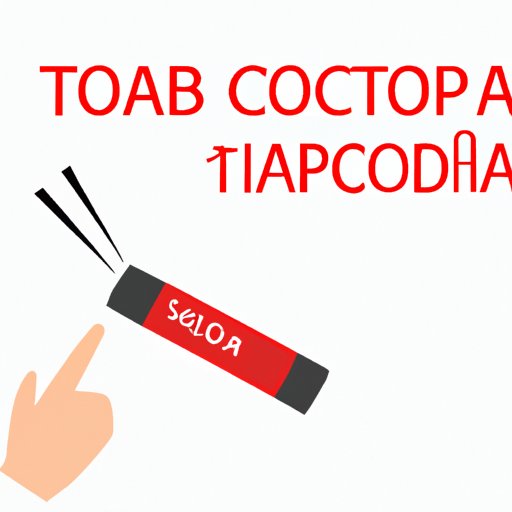
Introduction
Underage tobacco possession is a serious issue with legal and health implications that affect both minors and the retailers who sell tobacco products. Getting caught with tobacco under the age of 21 can lead to fines, community service, or other legal ramifications, as well as long-term health problems associated with tobacco use. The purpose of this article is to provide an overview of the legal and health consequences of underage tobacco possession, as well as offer resources and advice on preventing it.
The Consequences of Underage Tobacco Possession: Understanding The Legal System
State laws vary on the minimum age for purchasing, using, or possessing tobacco products. For minors caught with tobacco, the consequences can range from fines to community service, suspension of driver’s license, or even juvenile detention in some cases. Besides fines and other legal consequences, minors caught with tobacco may also face restrictions on participating in certain activities, such as school sports or extracurricular activities. It’s important for minors and their parents or guardians to understand the legal ramifications of underage tobacco possession and be aware of the laws in their state.
Caught Under 21: Understanding The Health Risks of Smoking Tobacco
Smoking tobacco can cause severe damage to the body, especially for young people. Nicotine, the addictive substance in tobacco, affects the brain and can lead to a lifetime of addiction. Smoking can contribute to lung cancer, heart disease, and other chronic illnesses that can result in early death. Short-term health risks include coughing, shortness of breath, and decreased physical fitness. It’s crucial for minors to be aware of the health risks associated with tobacco use and consider the long-term consequences of smoking before they try tobacco products.
If you’re trying to quit smoking and reduce your health risks, there are several resources and tools available. Talk with your healthcare provider, join a support group, use a nicotine replacement therapy like gum or patches, or consider counseling or alternative therapies like acupuncture or meditation. Qutting smoking can be difficult, but it’s worth the effort to improve your overall health and quality of life.
Repercussions of Underage Tobacco Purchases: Even Tobacco Retailers Can Be Held Accountable
Tobacco retailers can also face legal consequences for selling tobacco products to minors. Retailers who violate state laws prohibiting the sale of tobacco to minors may be fined or have their license to sell tobacco products suspended or revoked. Many retailers have implemented policies and procedures to help prevent underage sales, such as requiring identification from anyone who appears to be under the age of 27 or posting signage that warns against the sale of tobacco products to minors.
If you own a business that sells tobacco products, it’s important to train employees on how to avoid underage sales and to make sure your store is in compliance with state laws. Checking ID’s regularly, posting clear signs, and implementing policies to prevent underage sales can protect your business from legal trouble while also helping to keep minors from accessing tobacco products.
Alternatives to Smoking: Breaking The Habit Before You Get Caught
If you’re looking to quit smoking or reduce your tobacco use, there are several proven methods and alternative therapies that can help break the habit. Nicotine replacement therapy, such as gum, patches, or lozenges, can help deal with withdrawal symptoms and reduce cravings. Other alternatives like exercise, meditation, or acupuncture can also help people quit smoking and resist the temptation to smoke or use tobacco products.
It’s important to note that everyone’s circumstances are different, and not every method may work for everyone. Consult with your healthcare provider or a smoking cessation specialist to find the right method for you.
Preventing Tobacco Possession In Minors: Parental Guidance And Peer Pressure
Preventing underage tobacco possession and use starts with education and awareness. Parents, guardians, and support systems play a critical role in talking to minors about the dangers of tobacco use and providing them with the information and resources they need to resist the temptation to try tobacco products. Peer pressure is a common factor in underage tobacco use, so it’s essential to teach minors how to stand up to peer pressure and make informed decisions about their health.
There are numerous resources available to parents, teachers, and other adults to educate minors on the risks and consequences of tobacco use. State health departments, nonprofit organizations, and healthcare providers all offer free educational materials and resources that can help educate young people and prevent underage tobacco use.
Conclusion
Underage tobacco possession is a serious issue with lifelong legal and health consequences. Understanding the legal system and the potential health risks associated with smoking can help minors and their support systems make informed decisions about tobacco use. By educating young people, preventing underage sales, and breaking the habit before it starts, we can work together to reduce the number of minors who smoke and improve overall public health.
If you or someone you know needs help quitting smoking, talk to your healthcare provider or contact a local support group for resources and guidance.





